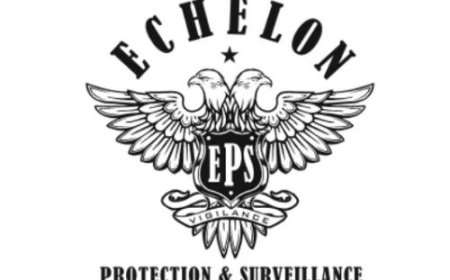Best Crypto Wallets for Beginners in 2025: Simple, Secure and Easy to Use
Discover the best crypto wallets for beginners in 2025. Compare secure, easy-to-use options ideal for new users starting their crypto journey.

Best Crypto Wallets for Beginners in 2025: Simple, Secure and Easy to Use
Entering the world of crypto can be exciting, but also overwhelming. One of the first things every new user needs is a reliable and secure crypto wallet. The best crypto wallets for beginners are straightforward to use, secure by design, and compatible with popular cryptocurrencies such as Bitcoin, Ethereum, and Dogecoin.
This guide explores top-rated wallets ideal for first-time users. Youll learn what features matter, which apps are easiest to use, and how to pick the right wallet based on your goals.
What Makes a Crypto Wallet Beginner-Friendly?
Intuitive User Interface and Setup Process
New users need a wallet that feels familiar. Beginner-friendly wallets have clean layouts, easy navigation, and guided onboarding that doesnt require technical knowledge. Look for step-by-step setup, visual cues, and quick access to features like receiving and sending coins.
Support for Major Coins like Bitcoin and Ethereum
At a minimum, your wallet should support Bitcoin (BTC) and Ethereum (ETH), which are the two most widely used cryptocurrencies. Many wallets also support altcoins, including Dogecoin, Solana, and stablecoins like USDC and USDT.
Backup and Recovery Features
Security is key. A good wallet for beginners should offer a secure backup system, such as a seed phrase or cloud-based recovery. Support for two-factor authentication (2FA) adds an extra layer of protection. Some modern wallets also offer social recovery or password-based access for added convenience.
Customer Support and Educational Resources
Best crypto wallets often include access to FAQs, tutorials, and live support. These help beginners avoid mistakes and learn how to protect their digital assets. Look for apps with built-in help centers or responsive support teams.
Top Crypto Wallets for First-Time Users
Coinbase Wallet Easy Integration with Exchange and dApps
Coinbase Wallet is a non-custodial wallet that gives users full control of their crypto. It supports Ethereum, Bitcoin, Dogecoin, and many ERC-20 tokens. It also integrates with the main Coinbase exchange, which is helpful for beginners moving between trading and holding.
- Beginner-focused design
- Supports DeFi and NFT access
- Available on mobile with private key ownership
Trust Wallet Mobile-Friendly and Multi-Chain Support
Trust Wallet supports over seventy blockchains and lets users access DeFi apps directly. Its easy to install, works on both iOS and Android, and is known for supporting a wide variety of tokens including ETH, DOGE, and SOL.
- Simple interface with strong security
- Built-in token swapping and staking
- No personal data collection
MetaMask Simple Browser Wallet for Ethereum and DeFi
MetaMask is one of the most popular crypto wallets for interacting with the Ethereum Virtual Machine and Web3 apps. Though designed for Ethereum, it also supports other EVM-compatible chains like Polygon and Arbitrum.
- Works on mobile and desktop
- Ideal for exploring DeFi and dApps
- Can connect to hardware wallets like Ledger
Exodus Great Desktop and Mobile Combo with Built-in Exchange
Exodus is a user-friendly wallet that supports over two hundred cryptocurrencies. It offers a desktop-first experience, perfect for those who prefer a larger screen. Its built-in exchange feature allows easy swaps between coins.
- Modern interface and visual portfolio tracker
- Desktop and mobile versions available
- Excellent for learning while managing assets
Zengo No Seed Phrase and Biometric Security for Beginners
Zengo is designed with simplicity and safety in mind. Unlike traditional wallets, it doesnt require a seed phrase. Instead, it uses facial recognition and encryption to back up your wallet.
- No passwords or seed phrases
- Biometrics and 3FA security
- Ideal for mobile-first users
Atomic Wallet All-in-One Interface with Staking Options
Atomic Wallet is a decentralized wallet that lets you store, manage, exchange, and stake cryptocurrencies all in one place. It supports over three hundred assets and works on both desktop and mobile.
- Non-custodial with private key control
- Built-in exchange and staking tools
- Great for beginners wanting more control
BitPay Wallet Ideal for Spending Crypto and Managing Keys
BitPay Wallet is perfect for beginners who want to use their crypto for payments. It supports Bitcoin, Ethereum, and stablecoins. Users can also order a BitPay card to spend crypto as cash.
- Supports crypto-to-dollar spending
- Secure environment for storing private keys
- Easy access to transaction history and payment features
Mobile vs Desktop vs Hardware Wallets: What Should Beginners Use?
Pros and Cons of Mobile Wallets for New Users
Mobile wallets are the most common choice for beginners. They are convenient, fast, and easy to use. However, they may be less secure than hardware wallets if the device is compromised.
When to Consider a Hardware Wallet
A hardware wallet like Ledger or Trezor provides strong security by storing your private keys offline. These are great for storing large amounts of crypto, but they require more setup and cost more than free apps.
Desktop Wallets: Easier Interface, Better Visibility
Desktop wallets offer a larger interface and are ideal for managing multiple coins or tokens. Exodus is a strong example of a beginner-friendly desktop wallet.
Key Security Tips for Beginners Using Crypto Wallets
Importance of Private Key and Seed Phrase Backup
Never share your private key or seed phrase with anyone. Write it down and store it offline in a safe place. This is the only way to recover your crypto if your device is lost.
How to Spot Fake Wallet Apps or Phishing Sites
Always download wallets from official websites or trusted app stores. Avoid clicking on unknown links or ads offering wallet downloads. Fake apps can steal your funds.
Enabling Two-Factor Authentication (2FA)
Where available, always turn on 2FA to protect your account from unauthorized access. Some wallets also offer biometric logins or pin code protection.
How to Choose the Right Wallet as a Beginner?
Based on the Type of Crypto You Hold
If you only hold Bitcoin and Ethereum, most wallets will support you. But if you want to hold Dogecoin, Solana, or other altcoins, check for multi-chain support.
Your Need to Access DeFi, NFTs, or Payments
If you want to use DeFi apps, go with MetaMask, Trust Wallet, or Coinbase Wallet. If you plan to use crypto for payments, BitPay Wallet is a good fit.
Balancing Convenience with Security
Mobile wallets are more convenient, while hardware wallets are more secure. Many beginners start with apps and later move to hardware wallets as their crypto balance grows.
Final Thoughts
Choosing your first crypto wallet doesnt have to be complicated. Focus on safety, ease of use, and support for the cryptocurrencies you want to use. The wallets listed above are all trusted by millions of users and are perfect starting points for anyone new to crypto.
As you explore the world of blockchain, DeFi, and digital assets, your wallet will be your most important tool. Choose wisely, stay informed, and always back up your private keys.

































